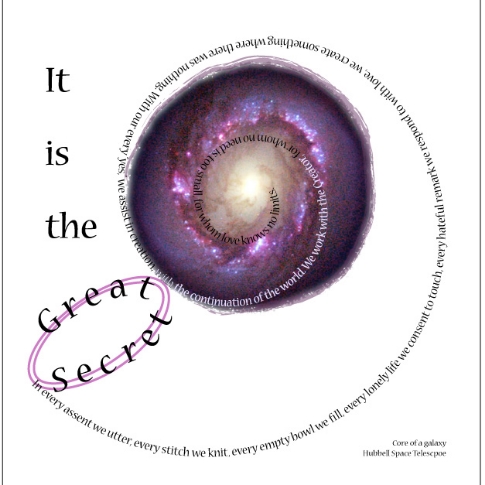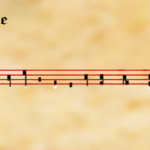How is your Lent going? Are you feeling like you’re making some spiritual progress, with the fasting and the alms-giving, and the extra prayer-time?
Well, Lent is almost over and if you think you’ve been working hard on your faith in these forty days, know that the evil one has worked even harder. He always does. Every Lent, it’s something; every Lent the evil one exploits a matter, with four reliable effects:
- It impacts the culture-at-large
- It foments doubt about precepts of faith
- It diminishes what has been construed as authoritative
- It challenges Christians to demonstrate love instead of anger or defensiveness or shrill righteousness and judgement
Watch for it. It’s true every year. Lent is when the world goes a little bit mad thanks to some pop-culture/culture war “controversy”, whether it’s about schlock fiction like The DaVinci Code, or overly-graphic cinematic devotionals like The Passion of the Christ, or the New York Times trying desperately to defame a pope, or rich ersatz explorers “discovering Jesus’ grave” or pop-stars playing at crucifixion. It’s always something, in Lent.
Usually, the “big something” that has everyone talking and screaming and spitting at each other ends up being, post-Lent, a big nothing, quickly tossed down the memory hole and rarely mentioned without a feeling of embarrassment that once again — while mediafolk grew wealthy off their dubious offerings — the hive of faith had been stirred up for nothing. Once again the wild sweetness of Lenten honey had been rendered dull by the illusory distractions of a world of ever-passing “trends.”
The evil one plays Christians for suckers, every year, and every year, the Christians fall for it. It is astonishing how quickly they abandon working on their relationship with Christ Jesus (and therefore, with one another) in order to indulge their inner Yosemite Sam. It is depressing how often they justify that self-indulgence in Christ’s name.
Here’s a newsflash, fellow Christians: the evil one feeds on the bitter fallout of this foolishness. Concerns about “disinformation stealing souls” does not give anyone the right to be a nasty sonofabitch to someone over a movie, or a book. Such wrath has precisely the opposite effect it intends; it serves no evangelical purpose. Seething rage over a movie, contra or pro, doesn’t save anyone’s soul; very likely, it instead imperils souls, by making Christianity look like a pharisaical miasma of temporally-fixated hysteria and high drama.
Now, admittedly, one needn’t become a Christian to find all of that, but how distressing when it appears that entering the church will more or less guarantee it.
A Christianity that rises to every bit of chum thrown into the cultural waters becomes The Church of the Holy Hyperventilation. A Liturgy of Daily Outrage in Engagement with the World doesn’t speak well of a belief system that is soundly supernatural and rooted in Eternity.
It suggests, rather, a spirituality that has become distorted due to a profound distraction, brilliantly played.
Which brings me to Noah, and the endless debate on it. Once again a movie, cleverly framed to fit into the narrow-minded constraints of the culture wars, has taken hold of Lent. The story of the Great Flood (adapted from scripture and then laced — as movies always are — with elements of the storyteller’s personal vision) has successfully managed to draw Christians out of the desert of Lent and remain firmly in and of the world, convinced that they’re doing God’s work by screaming “ignorant heretic sellout” at those who like the film and “reactionary whackadoo!” at those who do not.
It’s just a movie. People pay money to sit in a noisy theater with a sticky floor, and eat popcorn and watch computer graphics, and then they go home and distract themselves some more until the next.big.thing.happens. Do movies hugely influence the culture? Sometimes. Do religious movies win or lose souls for Christ?
Well, The Passion of the Christ is the most successful independent film ever made, and the 25th most successful film of all time and as this piece notes exceeded the box-office mojo of Noah. How many Christians have you met who credit their conversion to it’s terrible beauty? One, perhaps? Maybe?
Christians wringing their hands or whacking at their fellows out of fear that this post-modern film might speak volumes to a post-Christian world need to come to grips with the a couple of facts:
- We do, in fact, live in a post-Christian moment. It’s only a moment in the scheme of Eternity.
- Noah is a movie, a piece of make-believe, adapted from an Old Testament story. It doesn’t have to reflect a Christian understanding of anything.
- Movies reflect the sensibilities of those who make them, in this case a director who admits that he influenced by Kabbalah. When you carry on about the movie, you’re essentially carrying on about one man, who is frankly entitled to believe whatever he likes.
- Creating a big, noisy, existential drama about a movie only makes people curious and drives them to the theater to see the very thing you deeply hope they will not see. This is a basic tenet of parenting: what is darkly forbidden becomes irresistible. God had to learn this lesson too, in Eden. We’re still there, it seems.
- This too shall pass.
When it has passed, either one of two things will happen:
- You will realize you were once again played for a sucker in Lent, and the hours spent taking instruction at the feet of Christ Jesus were lost to another illusory moment, none of which you can get back, and you will resolve not to be fooled again.
- You will learn nothing, and begin to draw a nice big breath in order to bellow and carp and cavil with certainty that the next thing the zeitgeist delivers from its never-ending train of meaningless distractions will mean the ruin of souls, and the end of Western civilization. Because you live for the zeitgeist; it has become your consoling idol of misery and self-import — the one that keeps you from seeing people as people or things as mere things; the one you train your children to await and board and lay prostrate to, from the earliest of ages; the godling of the worldly.
That sounds harsh? Well, I know whereof I speak, for I know that idol well; its grip is fast, and disentangling from it takes time, and prayer and grace.
But it’s worth it, because until you detach from that insidious godling — and train your children against it — you are kept from the constant reality of Christ, and the great and primary secret:
“Everything” is about nothing.
Everything ended with the sacrifice of the Lamb.
All is consummated.
We are forever and always at the Last Supper, at the Crucifixion, at the Resurrection.
Time ended with the tearing of the veil and the rolling back of the stone.
The rest is illusion and catching up.
There is nothing to be afraid of.
No mere piece of cinema — not Noah, not The Passion of the Christ, or whatever you love or hate can overcome that.
Related:
There are actually a couple of great secrets. You want to know another one? here you go.
And then, of course, this one:

Comments are still closed for Lent.











